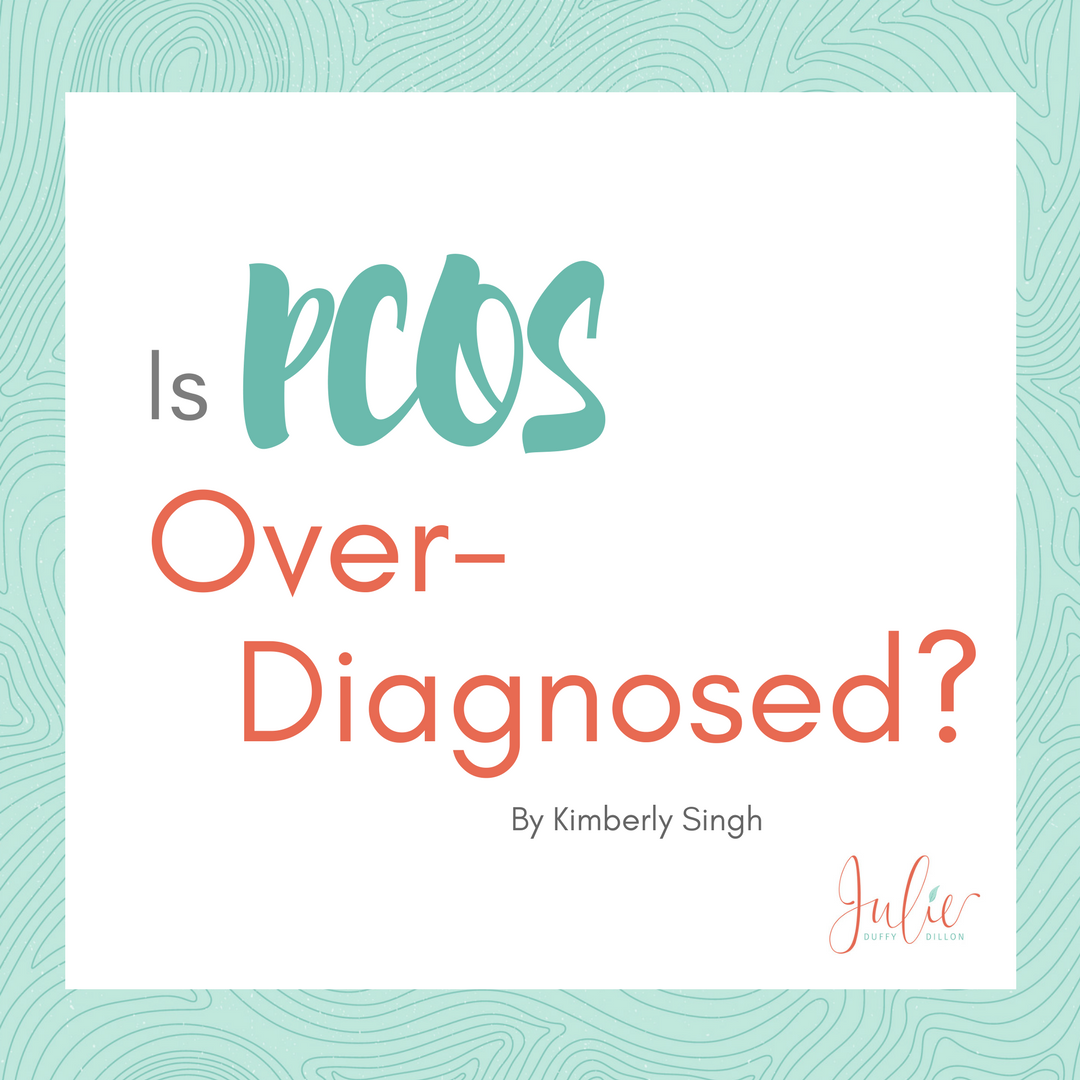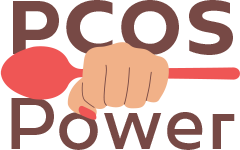This article was written by my previous Nutrition Grad Student, Kimmie Singh. She is a fat woman of color who experiences PCOS. You can find out more information about her work now as a dietitian here.
I love reading scientific literature challenging my assumptions and forcing me to step out of my comfort zone. Challenging the norms are a crucial part of scientific advancements, so when I learn about surprising PCOS theories, I try to remain curious.
There is a new article found here suggesting that the diagnostic criteria for PCOS is too broad, and this broad diagnostic criteria may be doing more harm than good.
As I read through this article I was deeply disappointed by the attempts to stretch a small amount of PCOS knowledge to make such a drastic assertion.
I am disappointed in the lack of PCOS research. If PCOS affected men’s reproductive health and quality of life, would there be more research?
Would there even be a fear that they are being over diagnosed? Not in a million years.
I cannot remember a time that the validity of men’s experiences was questioned, so I cannot answer begin to answer this question.
As with other health conditions, the diagnostic criteria for PCOS have changed over time. The most recent changes in diagnostic criteria include more types of PCOS and is partly responsible for the increase in PCOS prevalence.
However, since the change in prevalence since 1930s, there have been a countless number of environmental changes, such as changes in the food quality, pollutants, and lifestyle.
There is also a vast difference in the access to consistent healthcare for people of various socioeconomic statuses. The amount of changes that may contribute to a change in prevalence since the 1930s should not be understated.
Want to find a way to treat your PCOS without dieting?
Grab a FREE download from Julie here.
The authors of this article suggest that the increase in prevalence is largely due to an unnecessary over-diagnosis of PCOS. They argued that it might be best if people with PCOS are simply treatment without given a label. The authors argued that people with PCOS who seek pregnancy might benefit from knowledge of their ovulation status.
Is the author suggesting that people should only receive detailed information about their reproductive health if they are willing to have children?
Regardless of their fertility status or interest in having children, people are of equal value. Their worthiness of knowledge is not dependent on their interest in getting pregnant.
The article argued that the main benefits for receiving a diagnosis were related to treatment. They failed to acknowledge the support people with PCOS may receive as a result of their diagnosis. Discovering communities of other people with PCOS may improve their quality of life and learn to better manage their symptoms. This may reduce the feelings of isolation about their differences in appearances and experiences.
Providing treatment to people with PCOS without sharing the PCOS label will reduce the likelihood of engaging in PCOS communities that oftentimes empower people with PCOS.
The article argued that a PCOS diagnosis will likely add unnecessary stress to people with PCOS.
I cannot help but see the authors’ worries about fragile women that cannot contain their emotions about their diagnosis.
The authors even argue that people log onto social media, absorb invalid information, and will overestimate the severity of their diagnosis. They fail to acknowledge that people seek PCOS information on social media because their doctors provide such little information about the diagnosis.
They also fail to acknowledge how little support people with PCOS receive from healthcare professionals. After neglecting to acknowledge these realities, the authors argue people with PCOS cannot and do not know how to decipher which information is valid, bringing them to dramatize the severity of their PCOS.
Rather than taking away the PCOS label, we should empower patients to learn how to seek accurate information.
There is poor information about PCOS online. There is also poor information about almost every other health condition online. A clear distinction between PCOS and many other common health conditions is that people with PCOS do not get consistent and clear messages from healthcare providers.
People with PCOS are forced to do their own research and build communities of support. If they are inaccurately gauging the severity of their PCOS, I am sure the lack of support from healthcare professionals is a contributing factor.
There is not enough research supporting the assertion that providing a PCOS label to patients causes harm. The authors sited three resources as they suggested a label might cause harmful effects. Two of these articles did not even study people with PCOS, who have distinct experiences of infertility, miscarriages, and physical appearances that may benefit from the support they can receive from having a label. The third article had a small sample size that did not specifically study people with PCOS. They only asked participants to imagine they had PCOS symptoms.
Learning more about PCOS has provided researchers with more questions, including questioning the diagnostic criteria. The authors of this article argued not all people with PCOS would benefit with the PCOS label.
There is inadequate research to support their argument. In a general sense, the questions around the health benefits that result in labeling diseases remain unanswered.
I am confused as to why a topic that is so under-researched and novice should be applied to a disease like PCOS that has so many unanswered questions.
I find myself asking if PCOS were a men’s disease, would such assertions be made? Would these assertions include arguments of fragility and dramatization about patients? I cannot help but think that the narrative would be different if PCOS was not a women’s issue.
Want to explore more non diet options to help manage your PCOS, promote health AND healing? Click here for details on Julie’s PCOS and Food Peace course.
Resources
Copp, Tessa, et al. “Are expanding disease definitions unnecessarily labelling women with polycystic ovary syndrome?” Bmj, 2017, doi:10.1136/bmj.j3694.







